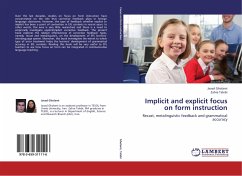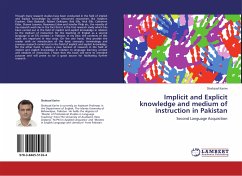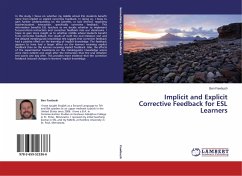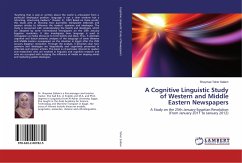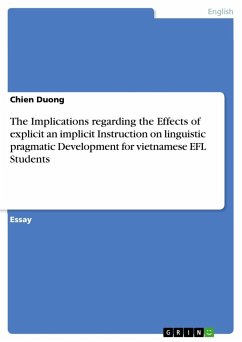Over the last decades, studies on focus on form instruction have concentrated on the role that corrective feedback plays in foreign language classrooms. However, the type of feedback whether explicit or implicit has been a point of contention in EFL contexts in recent years. In other words, this area is very little researched and there is a need to empirically investigate explicit/implicit corrective feedback. The present book explores the relative effectiveness of corrective feedback types, namely, recast and metalinguistic, on the development of EFL learners interlanguage system. Moreover, this book investigates the extent to which type of error treatment helps the learners development of grammatical accuracy in EFL contexts. Reading this book will be very useful to EFL teachers to see how focus on form can be integrated in communicative language teaching.
